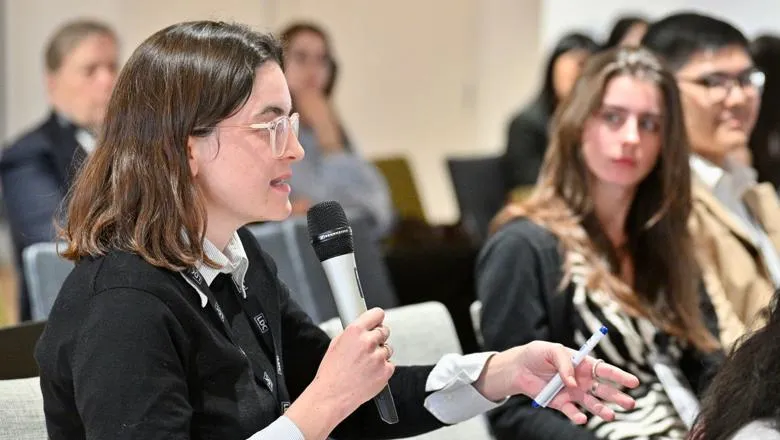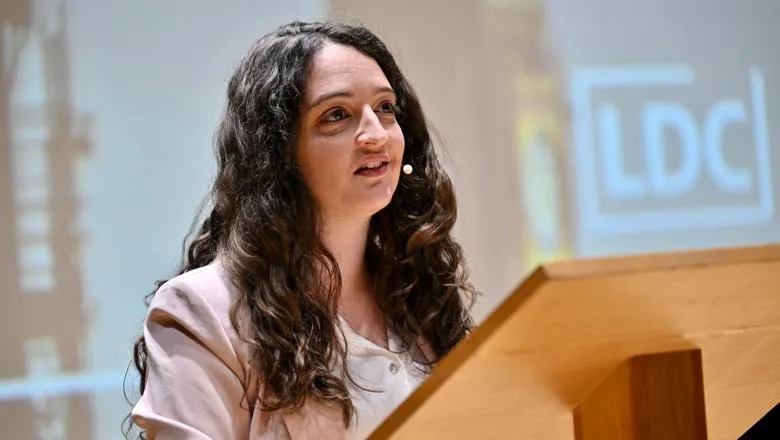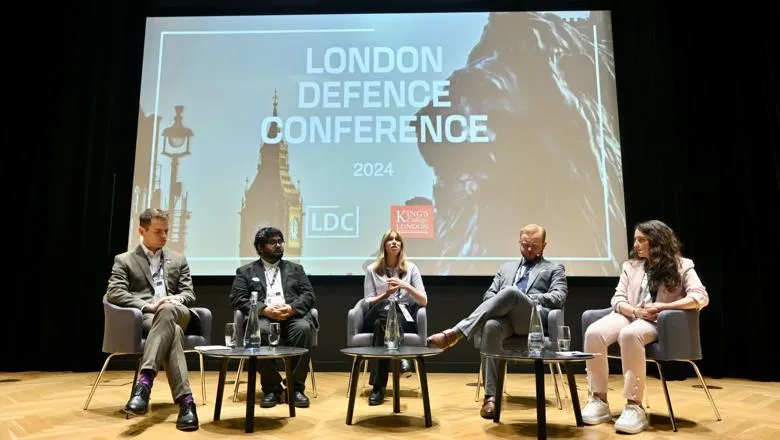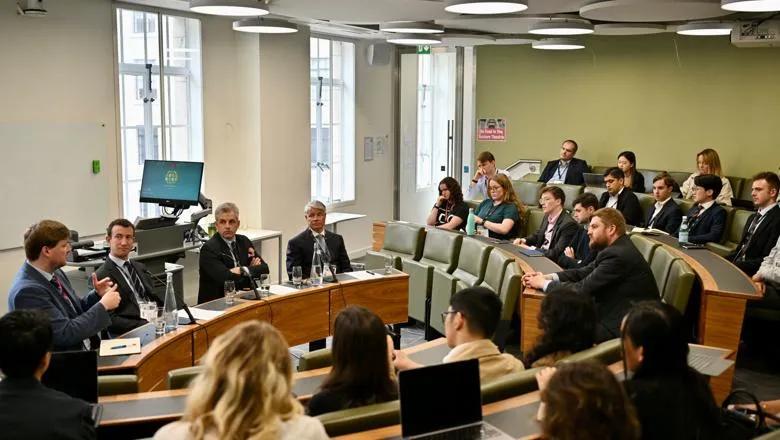We want this to be a space for dialogue, not just listening. We encourage you to engage, to be active participants, and to ask questions.
Dr Hillary Briffa, Assistant Director of the Centre for Defence Studies at King’s
21 May 2024
Day 1: The London Defence Conference 2024, Future Leaders Day
Leaders in security and defence from around the world are attending the annual London Defence Conference at King's this week.

The three-day conference began on today with a "Future Leaders Day", with students and young professionals from across the UK invited to engage with the biggest geopolitical challenges of the 21st century. Sessions covered topics such as the Middle East, economic sanctions and maritime security.
This year’s conference theme is "Deterrence: Building Capacity to Counter Global Threats", with panel discussions, keynotes and conversation sessions on contemporary and future challenges in security.

Welcoming delegates, Dr Hillary Briffa, Assistant Director of King’s Centre for Defence Studies, said: “Our goal for this conference is to provide a platform where fresh perspectives can be shared, where the voices of the next generation of defence leaders are heard, and where we can collectively explore and shape the future of global security.”
Many of the day’s sessions were specifically designed to platform young voices in security and defence. For example, the panel session "Youth perspectives on countering terrorism" focused on the radicalisation of young people and the lasting impacts of terror attacks on young people. Speakers included activists Alicia Taylor, who survived the Manchester Arena bombing, and Sohail Ahmed who was radicalised as a child before leaving extremist spaces to work in counterterrorism.

Speaking on the panel, Travis Frain OBE, University of Central Lancashire and former Chair of the National Counterterrorism Advisory Group, said: “If you look around the world, at France or Spain for example, there are far better systems in place. But our political class have been quite stubborn to accept that change needs to happen and that has been our biggest barrier.”
The impacts of [terrorist attacks] are lifelong. Not just for the people that are physically injured but those who are psychologically affected.
Travis Frain OBE, University of Central Lancashire
Breakout sessions were held on different security domains including cybersecurity, air and space, contemporary land conflict. The session on Maritime security covered issues such as the destruction of Russia's Black Sea fleet by Ukraine, the role of technology in maritime warfare and the recruitment crisis across countries including France and the UK. In other sessions, delegates heard from experts in conflict, diplomacy and security for Africa, The Middle East, The Indo-Pacific and Ukraine.

In a panel session on the role and effectiveness of economic sanctions, panellists discussed the balance between trying to influence behaviour and not wishing to place harm on civilian populations or international relations.
Following the 'Future Leaders Day', the main conference took place on 22 and 23 May to bring together political leaders, policymakers, military experts, academics and industry representatives to consider how to strengthen defence and security in an increasingly dangerous world.

